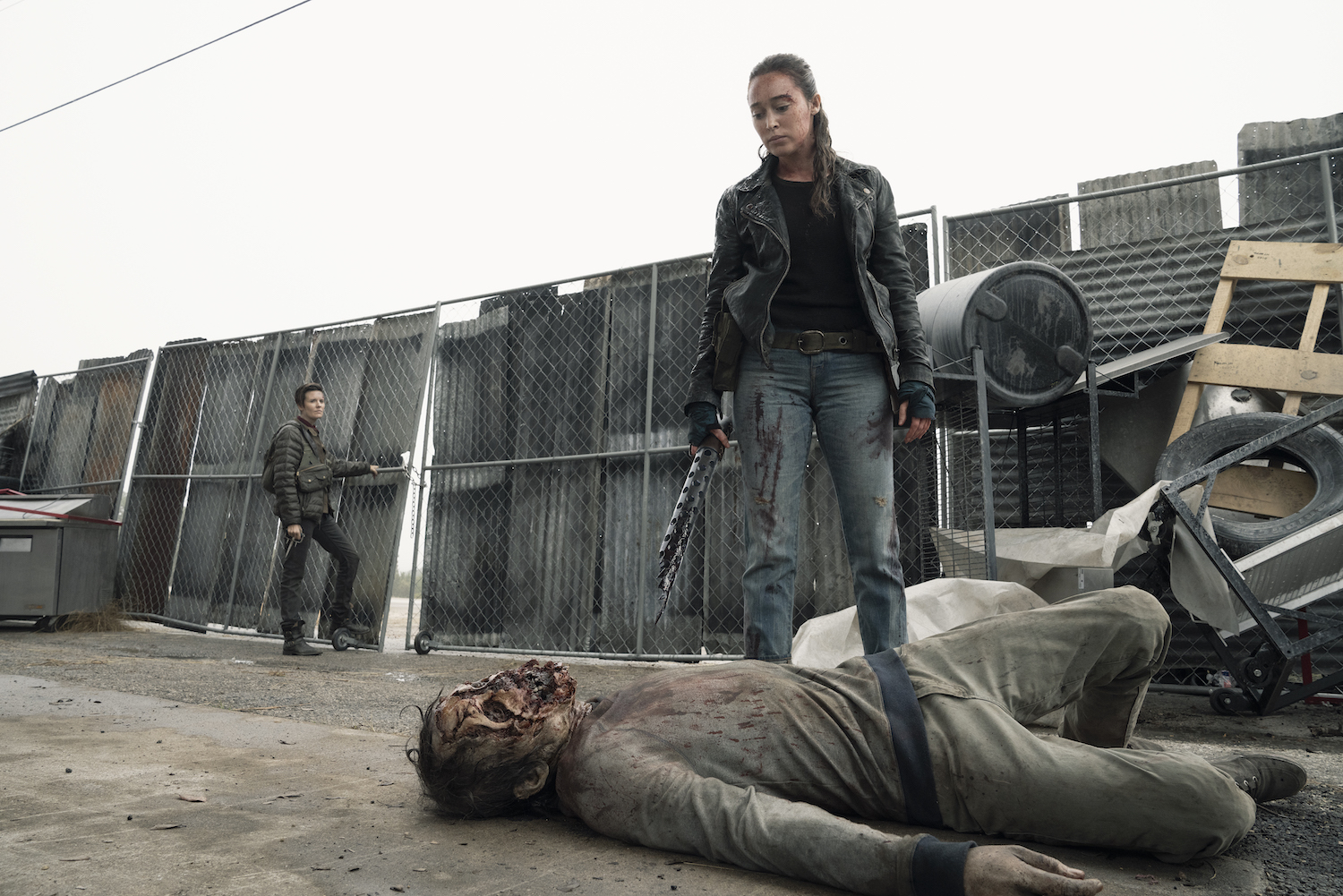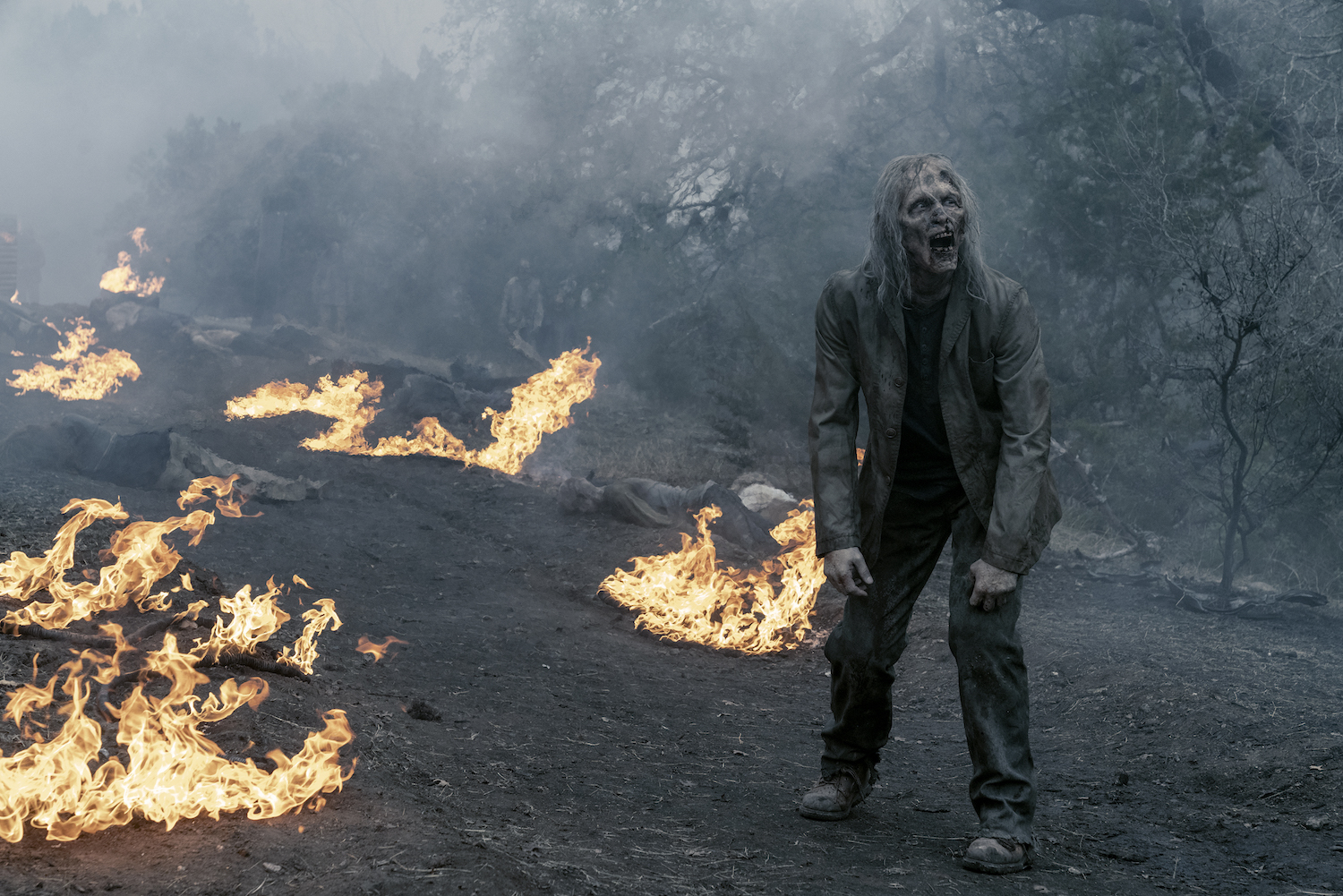Do Zombies Decay the Same Way As Humans?
Like all living creatures, humans die and our bodies begin to decompose right away; indeed, there's no stopping it, even for zombies. Of course, we know zombies aren't real, but death and decay certainly are.
In AMC's "Fear the Walking Dead," returning Sunday, June 2, at 9 p.m. EDT/8 p.m. CDT, reanimated human corpses roam the world, terrorizing the living. Here at Live Science, we have a soft spot for the macabre, and we wanted to know just how closely zombies represent a real human corpse. So, what happens to a human body when it dies?
"First will be the lividity," said Melissa Unfred, a Texas-based mortician who specializes in natural burials. Lividity is the discoloration process that results from blood sinking and pooling once the heart stops pumping. The part of the body that's closest to the ground will turn dark red where the blood settles. After about 24 hours, the lower right quadrant of the body will turn a bluish-green color as the bacteria in the pancreas are the first to start digesting tissues in the gut. The skin takes on "a really interesting marbled pattern," Unfred said "which is actually really pretty, but to each their own." [Top 10 Weird Ways We Deal with the Dead]

Within about 6 hours after death, the eyes and mouth will begin to dry out and pull back a bit. "Right after a body dies, if you're not embalming, it's almost impossible to close the eyes or the mouth," Unfred told Live Science. Embalmers often have to seal the eyes and mouth shut with special tools to make the face look at peace.
Unfred said she thinks the zombies on "Fear the Walking Dead" have eyes and mouths that, for the most part, look like they've followed a natural decay process. But the zombies seem to avoid the next step of decomposition: bloat.
Pretty soon after death, the bacteria that live in the body will start digesting internal tissues and releasing gases that get trapped in the gut, causing the body to inflate, or bloat, Unfred said. This process happens to all dead creatures. A dead deer, for example, might swell up so much that the legs stick straight out like pins in a pincushion. Sometimes, the bloat is so severe that the body will burst, she added.

Being that the zombies aren't real, it's no surprise that the ones in "Fear the Walking Dead" don't adhere to normal biological processes and somehow avoid this step of decay.
Sign up for the Live Science daily newsletter now
Get the world’s most fascinating discoveries delivered straight to your inbox.
Soon after bloating begins, skin will slough off and lose its moisture. "It kind of starts weeping," Unfred said. "Liquid starts to come out of the pores." The zombies on "Fear the Walking Dead" tend to replicate this dripping skin well.
Inside the body, tissues will continue to break down and detach from bone. So, zombies' ability to walk around also defies the natural decay process, because a dead body would no longer have tendons holding its bones together. Unfred said maybe that's why zombies have to jolt around so awkwardly when they walk. "Otherwise, if they were to start running, I think their legs would fly off," she said.

After the body goes through this slippery, soupy mess of active decay, all that's left are bones and dried skin, Unfred said. Environmental conditions play a big role in how fast a body reaches this final stage of decomposition.
"Temperature is a huge factor, as well as the availability of oxygen," Unfred said. The bodies left on Mount Everest, for example, stay in relatively pristine condition, as the frozen environment severely restricts bacterial decay, she said. On the other hand, "If you don't refrigerate a normal death in the 100-degree [Fahrenheit, or 38 degrees Celsius] Texas heat, you could start having bloat in a couple of hours."
Water also changes things. Corpses sitting in water "immediately start getting soupy," Unfred said. Bugs, bacteria and scavenging animals can also accelerate the natural decay process on land or in water.
Despite missing a few components of natural decay, the zombies on "Fear the Walking Dead" are still pretty gruesome. However, "I definitely think they should incorporate more bloated bodies," Unfred said. "That would be a little more horrifying."
Watch AMC's "Fear the Walking Dead" on Sundays starting June 2 at 9 p.m. EDT/8 p.m CDT.
- Exploring the Inevitable: Gallery of Death in Art
- Image Gallery: The Oddities of Human Anatomy
- 9 Reasons Why We Have an Undying Interest in the Undead
Originally published on Live Science.

Kimberly has a bachelor's degree in marine biology from Texas A&M University, a master's degree in biology from Southeastern Louisiana University and a graduate certificate in science communication from the University of California, Santa Cruz. She is a former reference editor for Live Science and Space.com. Her work has appeared in Inside Science, News from Science, the San Jose Mercury and others. Her favorite stories include those about animals and obscurities. A Texas native, Kim now lives in a California redwood forest.









